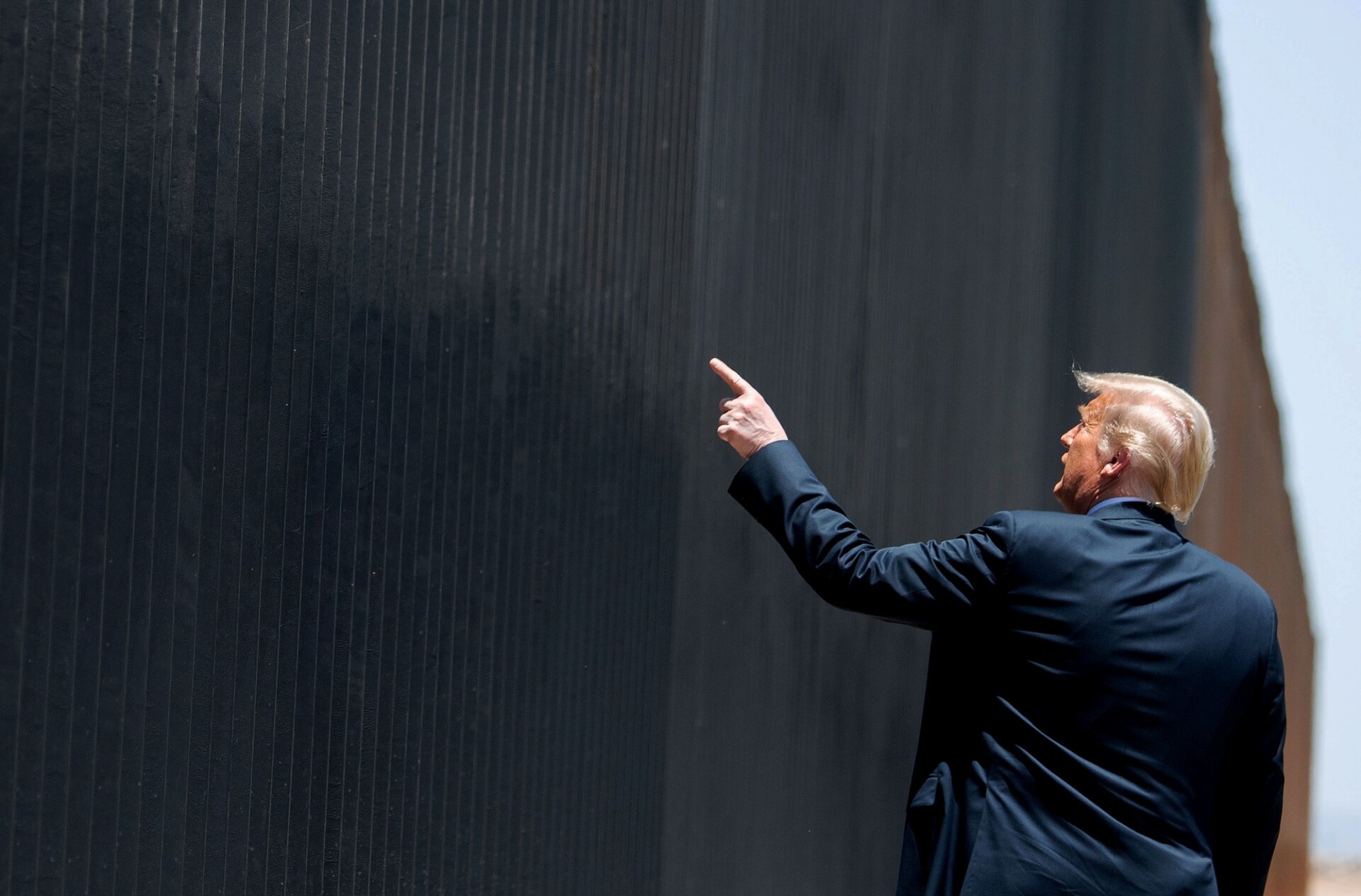Donald Trump has rounded off a dramatic first week in the White House by upending the consensus on migrant repatriation. America began using military aircraft to return migrants earlier in the week, and yesterday two US military planes took off for Colombia carrying returning migrants. But Colombian President Gustavo Petro blocked them from landing; in response, Trump threatened punitive tariffs and other retaliatory measures against Colombia. Petro swiftly backed down.
What was so shattering about Trump’s actions was their foundation in assumptions that have, at least officially, been long treated as obsolete: that nations have borders, and that national interest has primacy over the international kind. My first political memory was the fall of the Berlin Wall — a highly symbolic boundary — and the quarter-century that followed it only solidified a high-status public consensus that borders and boundaries were relics of the past. In their place, we’d have international rules concerning conflict resolution, human rights, trade, tax, and climate, and everything would become steadily more global and democratic.
The aspect of this post-national worldview which proved most contentious, from a non-elite perspective, was migration. Bodies such as the UN set out a post-national vision of migration simply as a fact of the coming borderless future, and something that must be accommodated by states and metabolised by their populations. But as international migration has accelerated, this view has come increasingly into tension with the preferences of local populations in destination countries.
In the run-up to Trump’s re-election, for example, rumours spawned that Haitian migrants resettled in Ohio were eating local pets, prompting a frenzied round of discourse about racism, migration, cultural difference, and “fake news”. Whether or not the rumours are true, the argument spoke to widespread popular anger and helplessness at policies that appeared to prioritise planetary “humanity” over the interests of national citizens.
The same frustration underlies now-common headlines in Britain concerning migration policy, especially where Channel migrants are concerned, and the accommodation of such individuals — mostly young men — has proved a particular flashpoint. Recently, for example, in one Northamptonshire village the police response to complaints of migrant men loitering outside the local primary school was reportedly that nothing could be done apart to “deliver some work” about “appropriate behaviours” and “cultural differences”. Locals, meanwhile, are outraged at the apparent refusal of the authorities to take their side in keeping children safe.
But this refusal is a logical consequence of the borderless paradigm, in which rulers must balance the interests of citizens against those of “humanity” in general. This approach inevitably limits the ability of police or government to be particularistic, instead viewing “migrants” and “locals” merely as different groups to be managed.
Most voters see this as a radical breach of the social contract, however. In this view, the job of government is setting and enforcing rules in the common interests firstly of citizens, and only (distantly) secondarily of the wider world. How, then, are citizens to respond to a government which seems to have decided unilaterally to discard this approach, in favour of one which sets rules designed to address the interests of “humanity” in its totality? In Britain, a mood of frustration and betrayal is now widespread. And with small boat arrivals rocketing under Keir Starmer, such tensions seem likely to escalate unless policy changes. Similar arguments have driven a sharp increase in support across Europe for “populist” anti-migrant parties.
In this context, we can expect Trump’s example to have an electrifying impact. His willingness to threaten punitive tariffs — in effect, economic sanctions — not to further any “rules-based international order” but instead America’s specific interest, will invite questions as to why other countries should not follow suit. Why, for instance, should Britain not apply its still-considerable political, financial, and regulatory leverage toward the deportation of foreign criminals and illegal arrivals?
Until this week, leaders could shrug ruefully and point to “international rules”. Trump’s actions just demolished that excuse. Concerted inaction on border control, long justified by international rules, has been revealed as a political choice all along. Now, with the hegemon itself pivoting away from such abstract universal rules, it remains to be seen how much appetite Western leaders have for sustaining them, against the clear wishes of their electorates.











Join the discussion
Join like minded readers that support our journalism by becoming a paid subscriber
To join the discussion in the comments, become a paid subscriber.
Join like minded readers that support our journalism, read unlimited articles and enjoy other subscriber-only benefits.
Subscribe